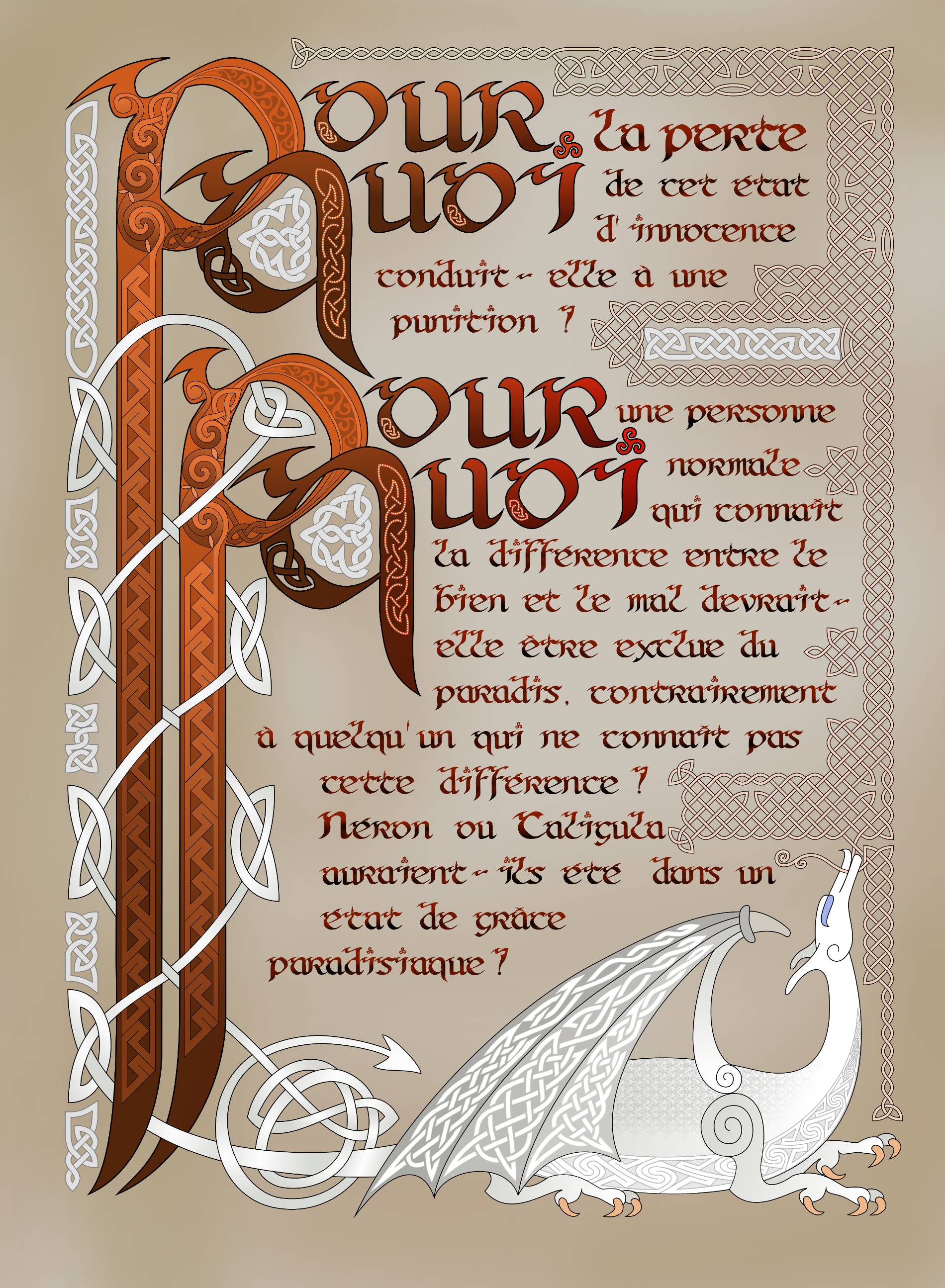fol. 16v
Pourquoi la perte de cet état d'innocence conduit-elle à une punition?(1) Pourquoi une personne normale qui connaît la différence entre le bien et le mal devrait-elle être exclue du paradis, contrairement à quelqu'un qui ne connaît pas cette différence? Néron ou Caligula auraient-ils été dans un état de grâce paradisiaque?
(1) Ce n'est pas que Dieu prévienne Adam qu'il pourrait mourir à cause de la consommation du «fruit défendu»; une menace de peine de mort est bien impliquée.
Robert Alter le souligne à la page 21 de son livre "A translation with commentary. The five books of Moses" (New York: W.W. Norton, 2004):
Genèse 2.16-17: "sûrement manger ... condamné à mourir. La forme de l'hébreu dans les deux cas est ce que les grammairiens appellent l'absolu infinitif: l'infinitif immédiatement suivi d'une forme conjuguée du même verbe. L'effet général de cette répétition est de mettre l'accent sur le verbe, mais parce que dans le cas du verbe «mourir» c'est le modèle régulièrement utilisé dans la Bible pour prononcer des condamnations à mort, «condamné à mourir» est un équivalent approprié."
fol. 16v
Why does loss of this state of innocence lead to punishment? (1) Why should a normal person who knows the difference between good and evil be excluded from Heaven, unlike someone who doesn't know this difference? Would Nero or Caligula have been in a state of heavenly grace?
(1) It is not so that God gave Adam a warning that he might die from eating the “forbidden fruit”; a threat of death penalty is implied.
Robert Alter points this out on page 21 of his book "A translation with commentary. The five books of Moses" (New York: W.W. Norton, 2004):
Genesis 2.16-17: "surely eat... doomed to die. The form of the Hebrew in both instances is what grammarians call the infinitive absolute: the infinitive immediately followed by a conjugated form of the same verb. The general effect of this repetition is to add emphasis to the verb, but because in the case of the verb “to die” it is the pattern regularly used in the Bible for the issuing of death sentences, “doomed to die” is an appropriate equivalent."
Cliquez l'image pour une meilleure qualité.
Click on the picture for a better quality.

